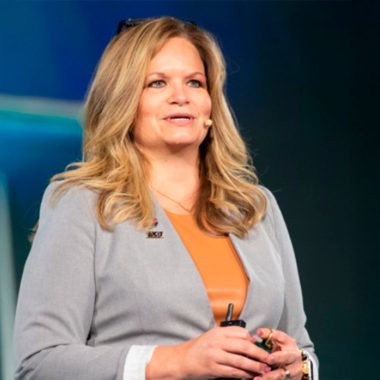Companies talk a lot about purpose these days, but most of them struggle to make it feel real. While businesses spend millions trying to connect with customers, nonprofit organizations have quietly mastered something many corporations can’t figure out: how to make people actually care. Osama Hosein has spent the last decade working in marketing, but his shift from traditional business to nonprofit work five years ago taught him lessons that purpose-driven companies desperately need to learn.
Finding Something Bigger Than Sales
Osama’s background spans multiple sectors, but working with NGOs changed everything for him. “I believe that after working a lot and having experience working with NGOs, marketing should serve something bigger than just sales,” he says. That shift wasn’t just philosophical. “Working with nonprofits helped me see that strategy and impact can go together. I’ve seen campaigns that did not just get the clicks. They changed lives.” This experience shaped how he thinks about what marketing can accomplish when it’s driven by genuine purpose rather than quarterly targets.
Three Core Principles That Drive Success
When asked about what makes nonprofit marketing so effective, Osama identifies three essential elements that set these organizations apart from traditional businesses.
- Storytelling Excellence: “NGOs are great at storytelling, they move people emotionally, so businesses can learn how to communicate in more human and reliable ways,” he notes. Nonprofits understand that authentic stories create genuine connections, something many companies struggle to achieve despite significant marketing budgets.
- Community Building Over Customer Acquisition: The second principle focuses on relationship depth rather than transaction volume. “Nonprofits do not treat people as customers, so they treat them as part of this mission,” he explains. “That kind of loyalty and engagement is something companies need today.”
- Operational Agility: The third principle stems from necessity rather than choice. “NGOs work the majority of their time in high-pressure, fast-changing environments. They don’t have the luxury of long timelines. They move fast, test ideas, and adapt very quickly,” Osama observes. “This mindset can really benefit companies that want to stay relevant.”
Osama’s approach came to life during a humanitarian campaign following the earthquake in Turkey. Rather than developing an elaborate plan, his team launched a quick fundraising campaign and tested different messages in real time. “Instead of waiting to build the perfect plan, we tested different messages and creatives in real time. One version started performing very well, so we shifted the budget and focus instantly,” he recalls. “That one change doubled the donations. This is the kind of agile thinking I believe businesses should be focusing on.”
The Future of Purpose-Driven Marketing
Looking ahead, Osama sees technology playing an important but limited role in nonprofit-inspired marketing. While acknowledging AI’s utility, he emphasizes the irreplaceable human element. “AI is very helpful in terms of building the storytelling during the journey of the customers. But we need that humanitarian touch. We cannot depend entirely on AI, especially when working with NGOs,” he states. The reason is simple: authentic emotional connection cannot be automated. “Nonprofits always tell stories that connect people emotionally. They talk about real people, real lives. It’s not just marketing, it’s something personal.”
Purpose-driven companies can implement three specific strategies based on nonprofit marketing principles. First, improve storytelling by focusing on human elements and emotional connections rather than just product features. Second, test campaigns faster and adapt based on real-time feedback instead of waiting for perfect conditions. Third, focus on community engagement by treating customers as mission partners rather than transaction targets. Osama emphasizes the importance of including practical advice for business leaders
His work with NGOs taught him something important: “When marketing is full of meaning and purpose, people care more and results follow.” For companies still struggling to make their purpose feel authentic, he has a direct message: “If your company stands for something, your marketing should reflect it. It’s time to stop talking about purpose and start building it.”
Connect with Osama Hosein on LinkedIn to explore how nonprofit insights can reshape your marketing strategy.








